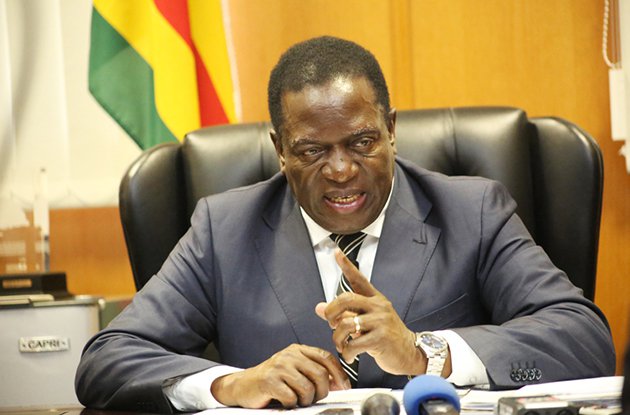News / Local
Mnangagwa, Parly sued over constitutional amendments
22 May 2021 at 06:57hrs |
3134 Views

THE Law of Society of Zimbabwe (LSZ) has taken the Parliament of Zimbabwe to the Constitutional Court (ConCourt) seeking an order to set aside the promulgation of Constitutional Amendment No 1 and 2 Bills.
The lawyers said the two amendments were passed unconstitutionally.
Parliament passed Amendment (No 1) Bill in April, and it's yet to be signed into law. But Constitutional Amendment (No 2) Bill which sailed through on May 4 was signed into by President Emmerson Mnangagwa on May 7.
The amendments seek to remove the presidential running mate clause and give Mnangagwa unfettered powers to appoint the Chief Justice, Deputy Chief Justice and judges without exposing them to public interviews and extending the retirement age of judges from 70 to 75.
Former Chief Justice Luke Malaba was set to benefit from the Amendment (No 2) Bill after his term was extended on Friday last week, but was overturned by the courts after Zimbabwe Human Rights NGO Forum executive director Musa Kika and the Young Lawyers Association of Zimbabwe challenged the fiveyear extension.
Government has since appealed the judgment at the Supreme Court.
In the latest application filed by LSZ executive secretary Edward Mapara, Parliament is accused of acting unconstitutionally by passing a lapsed Constitutional Amendment (No 1) Bill which was brought to the House during the late former President Robert Mugabe's era.
The organisation also accused the legislature of promulgating Amendment (No 2) Bill without taking it to a referendum as stipulated by the Declaration of Rights.
"The Bill is invalid on the grounds that Parliament failed to fulfil constitutional obligations in that it passed a lapsed Constitutional Amendment (No 1) Bill 2017 (Constitutional Bill No 1) in violation of section 147 of the Constitution of Zimbabwe," Mapara said.
He cited Mnangagwa, Parliament, Senate president Mable Chinomona, Speaker of National Assembly Jacob Mudenda, Justice minister Ziyambi Ziyambi, and Attorney-General Prince Machaya as respondents.
Mapara said Parliament breached section 61(1) (a), 62(1) and (2) and 67 (2)(c) and (d) and 67(3)(a) of the Declaration of Rights.
The lawyers said the two amendments were passed unconstitutionally.
Parliament passed Amendment (No 1) Bill in April, and it's yet to be signed into law. But Constitutional Amendment (No 2) Bill which sailed through on May 4 was signed into by President Emmerson Mnangagwa on May 7.
The amendments seek to remove the presidential running mate clause and give Mnangagwa unfettered powers to appoint the Chief Justice, Deputy Chief Justice and judges without exposing them to public interviews and extending the retirement age of judges from 70 to 75.
Former Chief Justice Luke Malaba was set to benefit from the Amendment (No 2) Bill after his term was extended on Friday last week, but was overturned by the courts after Zimbabwe Human Rights NGO Forum executive director Musa Kika and the Young Lawyers Association of Zimbabwe challenged the fiveyear extension.
Government has since appealed the judgment at the Supreme Court.
In the latest application filed by LSZ executive secretary Edward Mapara, Parliament is accused of acting unconstitutionally by passing a lapsed Constitutional Amendment (No 1) Bill which was brought to the House during the late former President Robert Mugabe's era.
The organisation also accused the legislature of promulgating Amendment (No 2) Bill without taking it to a referendum as stipulated by the Declaration of Rights.
"The Bill is invalid on the grounds that Parliament failed to fulfil constitutional obligations in that it passed a lapsed Constitutional Amendment (No 1) Bill 2017 (Constitutional Bill No 1) in violation of section 147 of the Constitution of Zimbabwe," Mapara said.
He cited Mnangagwa, Parliament, Senate president Mable Chinomona, Speaker of National Assembly Jacob Mudenda, Justice minister Ziyambi Ziyambi, and Attorney-General Prince Machaya as respondents.
Mapara said Parliament breached section 61(1) (a), 62(1) and (2) and 67 (2)(c) and (d) and 67(3)(a) of the Declaration of Rights.
Source - newsday
Join the discussion
Loading comments…

































